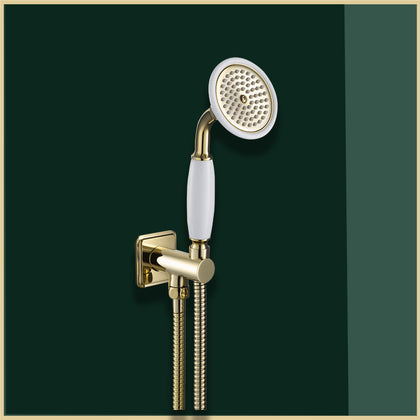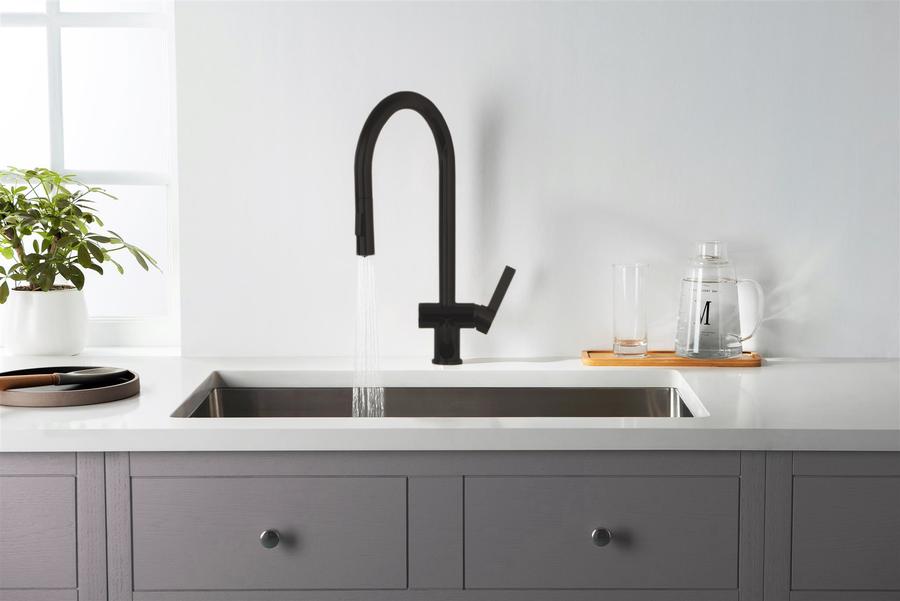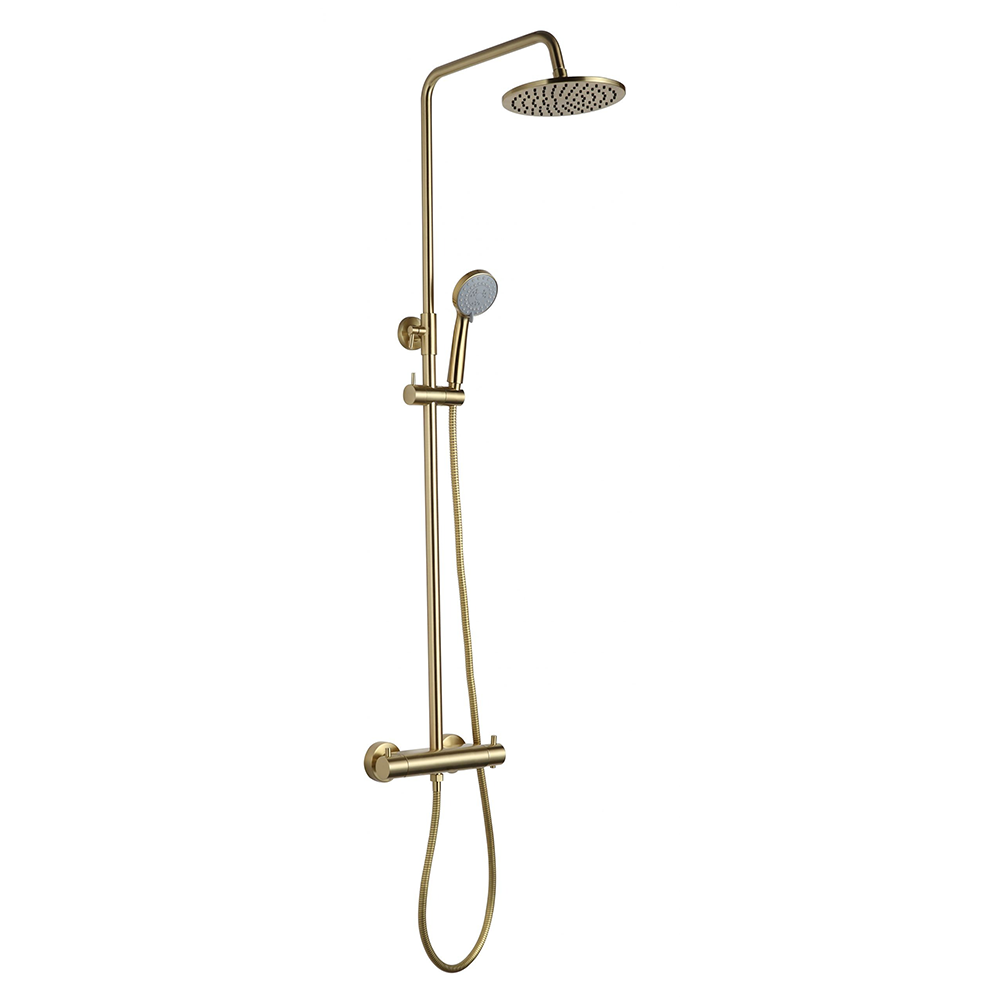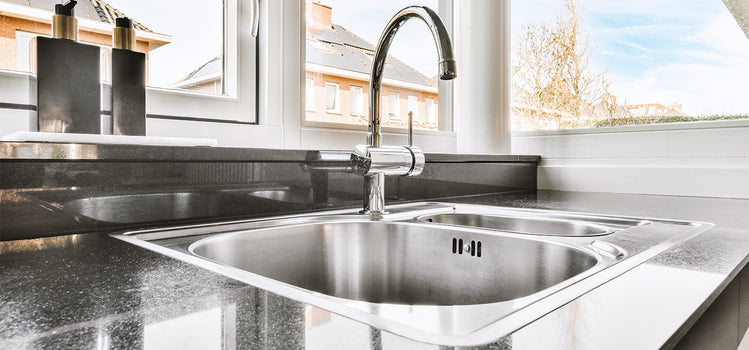Showering is a daily ritual cherished by many. There are distinct advantages and disadvantages associated with both hot and cold showers, each offering unique effects on the body and mind.
Hot Shower Facts:
Indulging in a hot shower is undeniably one of life's little luxuries. After a taxing day, there's nothing quite like the sensation of warmth enveloping you, washing away the stress and fatigue. Yet, despite its comforting allure, are you aware of the potential drawbacks it may pose to your skin's health?
 |
| Image Credit : Goldbathroom.uk |
The intense heat from a hot shower can be harsh on your skin, stripping it of its natural oils and leaving it parched and depleted. Over time, this can lead to dryness, flakiness, and even cause your hair to become brittle. Moreover, the environmental impact of hot showers should not be overlooked, as they contribute to water wastage and consume significant energy resources.
Fortunately, there are numerous strategies you can employ to enjoy a refreshing shower experience without compromising your skin's well-being or harming the planet. Let's delve into some eco-friendly and skin-conscious showering practices below!
Recent research findings highlight a concerning trend: the average individual spends approximately 17 minutes indulging in a hot shower, resulting in the wastage of over 2 gallons of water. While some individuals make efforts to optimize their shower routines by adjusting temperature settings or reducing shower durations, it's more common for individuals to escalate the temperature towards the end of their shower sessions.
Apart from the environmental impact, prolonged exposure to hot water can also take a toll on your skin's health, leading to dryness and dehydration. To mitigate this risk, experts recommend limiting shower durations to around five minutes.
Moreover, it's essential to exercise caution if you have any cuts or wounds on your body, as exposing them to running water in the shower can increase the risk of infection.
Although showering is an integral part of many people's daily routines, offering a revitalizing and rejuvenating experience, it's crucial to acknowledge the potential drawbacks associated with this activity. Despite its relaxing nature, there are certain disadvantages that may detract from its overall enjoyment and effectiveness.
 |
| Image Credit : Tapron.co.uk |
For more information on innovative features in modern shower handsets, you can check out this insightful guide. Link - https://tapron.co.uk/blogs/bathroom-ideas-our-blog-tapron/modern-kitchen-with-trendy-kitchen-taps
1) Shower waste -
On average, an individual produces approximately 1-2 gallons of water per minute while showering. Extrapolating this, it's estimated that the average person squanders around 12 gallons of water daily simply by indulging in a shower! This substantial water wastage poses a significant concern, particularly in regions where water resources are limited or come at a premium cost.
2) Body jets -
Having body jets on your shower head means relinquishing control over both water pressure and temperature.
The disadvantages of using hot water for showering are as follows:
1.
Wastefulness
2.
Risk of burns on skin
3.
Risk of scalding
4.
Difficulty in cleaning the shower area
5.
Discomfort of hot water on skin
6.
Lack of pressure to wash hair
Cold Shower Facts:
Taking a cold shower can be invigorating, offering a variety of benefits for both body and mind. Cold water immersion has been linked to mood improvement, appetite suppression, and enhanced immunity.
Cold showers trigger the body's natural defense mechanisms, promoting better resilience against illnesses and bolstering overall immunity. Additionally, the cold water aids in detoxification by stimulating circulation and facilitating the removal of toxins from the body. Some studies suggest that cold showers may even contribute to weight loss by increasing calorie expenditure compared to hot showers.
On the other hand, while hot showers are often favored for relaxation, they may not offer the same array of health benefits as cold showers do.
The advantages of using cold water for showering are as follows:
Cold showers offer a multitude of benefits, with one of the most prominent being their ability to invigorate and awaken the senses, making them an excellent choice for starting the day feeling refreshed and alert. Additionally, the cold water's stimulation can elevate heart rate, potentially contributing to increased calorie burning throughout the day.
 |
| Image Credit : Goldbathroom.uk |
While cold showers can indeed provide a refreshing jolt in the morning, they may initially feel uncomfortable, particularly for those unaccustomed to the abrupt temperature change. On the other hand, hot showers are more commonly preferred for their muscle-relaxing properties, offering a soothing respite from stress and tension.
Beyond the immediate wake-up call, cold showers offer several health benefits. They can promote skin health by tightening pores and reducing inflammation, contributing to a clearer complexion. Furthermore, the cold water's invigorating effects can aid in toxin elimination and inflammation reduction, making it beneficial for individuals with conditions like arthritis, psoriasis, or eczema.
From a practical standpoint, cold showers are also more cost-effective, less water-intensive, and environmentally friendly compared to their hot counterparts, making them a sustainable choice for daily hygiene routines.
 |
| Image Credit : Goldbathroom.uk |
If you're interested in exploring more about different types and styles of basin taps, you might find this comprehensive guide helpful. Check out the link here : https://goldbathroom.uk/blogs/news/basin-taps-guide-gold-bathroom-uk


Comments
Post a Comment